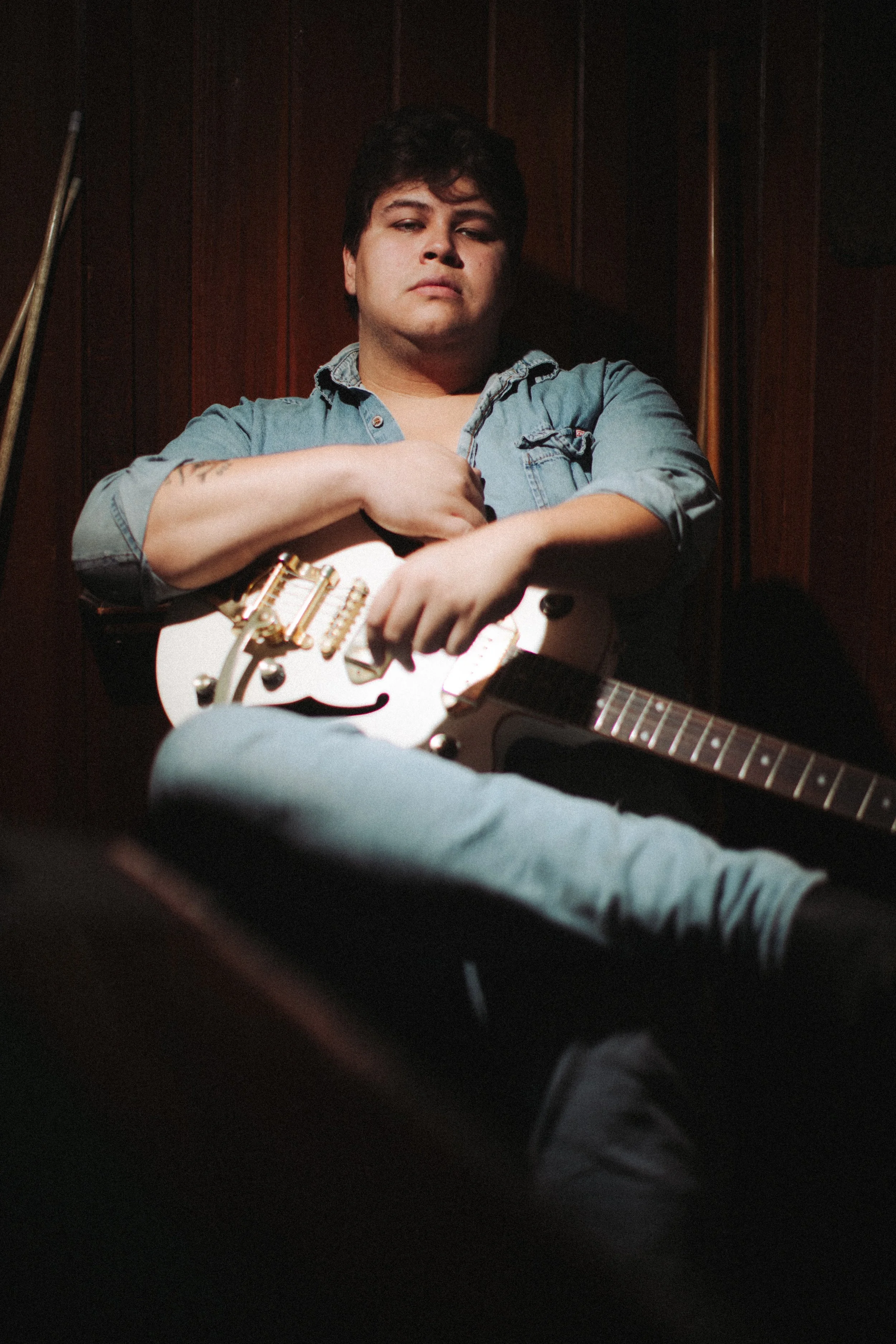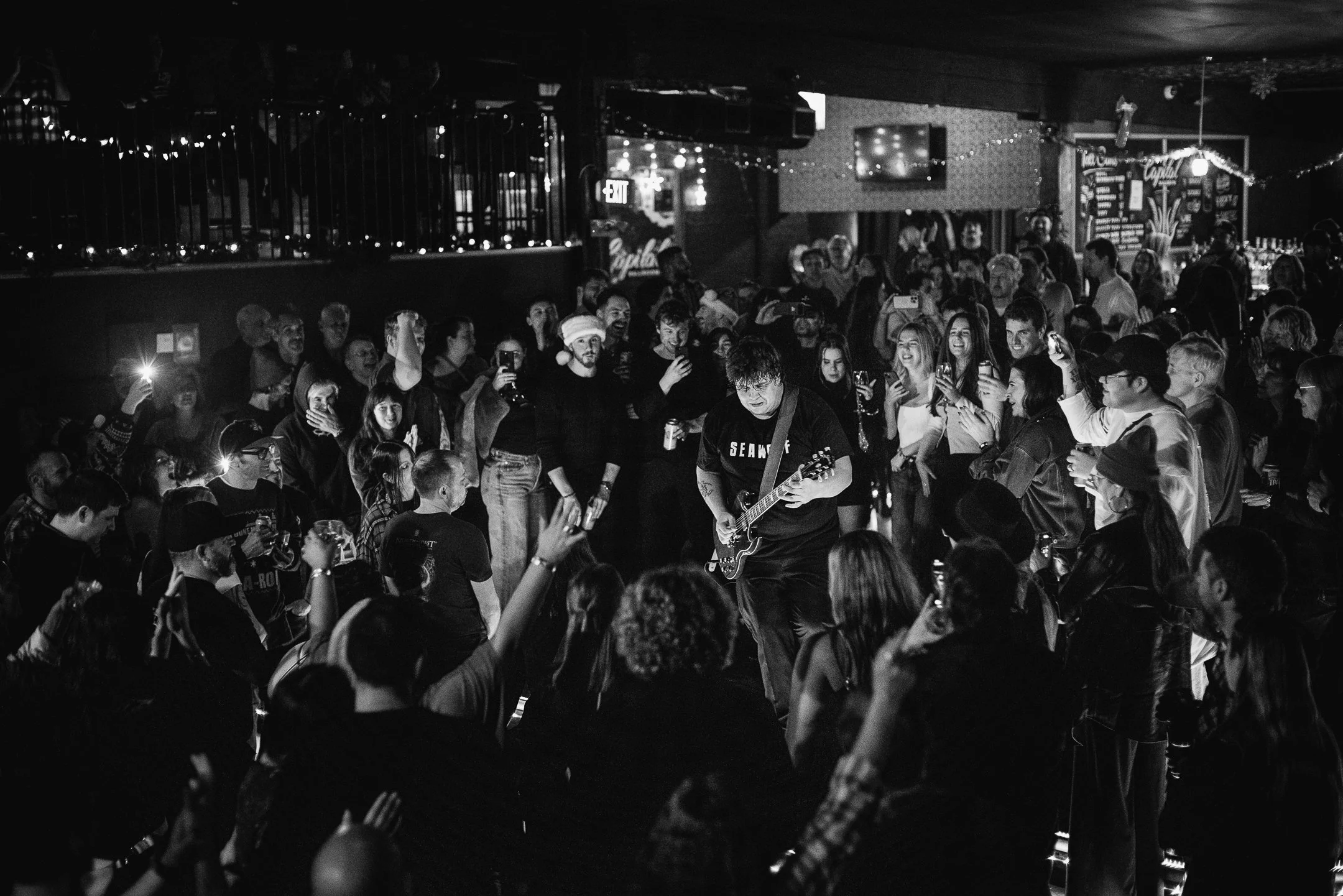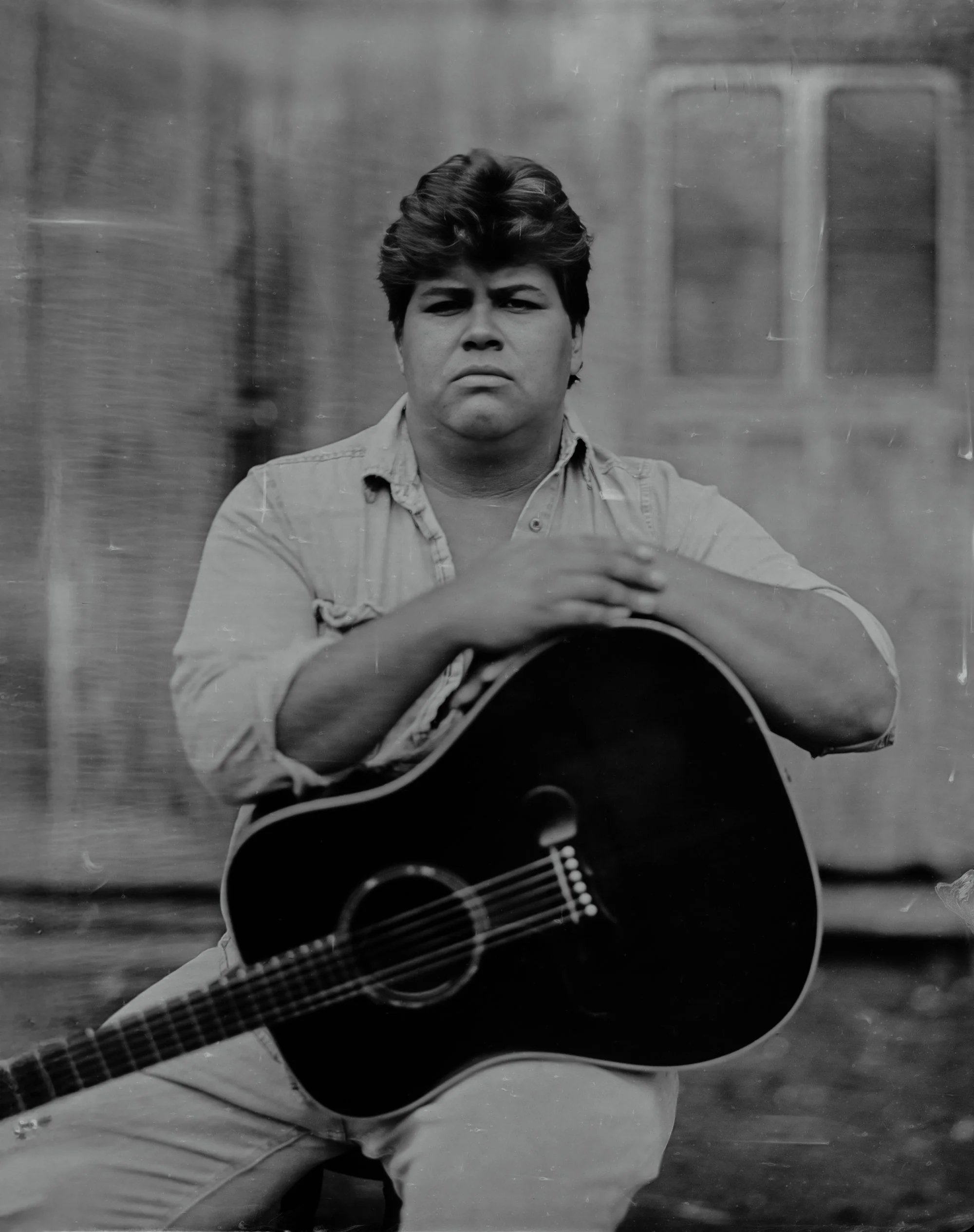Garret T. Willie’s second album, Bill’s Cafe, is more than a record — it’s a tribute, a turning point, and a reckoning. Named after his grandfather’s pool hall café in Alert Bay, British Columbia, the album carries the ghosts of home into the bright lights of Nashville. It was there, under the guidance of Grammy-winning producer Tom Hambridge (Buddy Guy, Kingfish, Susan Tedeschi), that Willie sharpened his blues-rock fire into something bigger, bolder, and truer.
Before his first writing session, Willie wandered through the Johnny Cash Museum. The visit hit hard. His grandfather bore an uncanny resemblance to Cash — same look, same Air Force service, same quiet gravity. That connection became a spark, tying Garret’s Indigenous roots and small-town upbringing to a lineage of timeless, outlaw storytelling.
Bill’s Cafe is a road map of grit, heart, and soul. Written and recorded between late nights, long drives, and Nashville sessions, the record captures the restless spirit of a young artist carrying old-soul blues and rock traditions into the future. Across the album, Willie threads tales of whiskey-fueled nights, missed chances, stubborn resilience, and the freedom that only comes with chasing music town to town.
“I think we’re providing the world with something it doesn’t have right now,” says Willie. “I don’t wanna just be the biggest in British Columbia, I wanna be the biggest in the world. It’s been a long time since somebody’s done it right or been doing it from a genuine place and not just because they admire it. This isn’t, like, an imitation, y’know? If I don’t feel it, I don’t do it.”
With his guitar in hand and a voice that cuts like hi-beam headlights on a dark backroad, Willie delivers songs that feel lived-in and timeless. Bill’s Cafe is about the forces that hold us — love, loss, addiction, ambition, and the unshakable call of music as a means of survival. It’s a live wire of raw energy and soul — a reminder that sometimes the most dangerous thing is also the most irresistible.
That edge runs through the whole record. From roadhouse stompers to backseat ballads, Willie shines a light on hustlers, heartbreakers, and the broken pieces we all carry. He doesn’t just sing the blues — he spits them, shouts them, and bends them into something both timeless and dangerous.
In Bill’s Cafe, Garret T. Willie doesn’t just honor his past — he builds a bridge between worlds: Alert Bay and Nashville, tradition and reinvention, the ghosts of family and the fire of the future.
On stage, Garret T. Willie is undeniable. At just 25 years old, his towering stature and deep, gravel-soaked voice channel the weight of an artist who has lived every shade of the blues. His performances are electric — no gimmicks, no fluff, just raw shredding, searing tone, and solos that rip straight through the room. He plays with the intensity of the greats, often bending the guitar behind his head mid-solo or leaping into the crowd to bring the fire even closer. Willie’s live show is more than a concert — it’s a shockwave of blues-rock energy that leaves audiences speechless and makes believers out of anyone.
“In the beginning, I wanted to be like Angus. I wanted to perform. So I was very well-versed in AC/DC, but what I didn’t realize at the time was that, in studying Angus, what I was really studying were variations of Albert King and B.B. King and Chuck Berry licks,” says Willie. “And just listening to what they were all singing about, it started to connect on a deeper level. AC/DC and all that is great if you just want a rush, but when I started to really feel it and connect to it I didn’t really know what it was it was like what Keith Richards, I think, said: ‘I’m hearing a sound I shouldn’t be hearing.’
I think that’s the one common ground everybody has who’s into this music honestly and genuinely: it’s that you lived it. You’re living it first and then you discover it and then you think ‘Yeah, I have a way to express it.’ Being genuine about it is a different thing. To be able to sing as hard as I do, from as deep as I do, I’m drawing on a lot of pain. And that’s where it’s coming from. It’s coming from really deep inside. It’s like a cry out, I guess. Even if I’m singing a really good rock song, it kinda comes from the same place, the same source.”
“I will bring my culture in once as an example,” says Willie. “I used to carve when I was younger. I’m from Alert Bay, which is ’Namgis First Nation and I’m also from Kingcome Inlet and I’m also a little bit Tlingit, from up in Alaska. So I have the rights to carve those styles because I’m from there. But what I don’t have the rights to do is carve West Coast style – Nuu-cha-nuulth – because I’m not from there. I don’t have the rights to do that. And that’s how I look at music. I really admire Muddy Waters’s ‘Got My Mojo Working’ but I don’t have the rights to do that shit. I wasn’t brought up in Chicago and I’m not from there, y’know? If I was to do it, it would be in clichéd form and it would be disrespectful.
“To quote Lightning Boy’s classical teacher in the movie Crossroads, it’s a cultural thing. Certain things you’re born into and some things you aren’t, and that’s how I look at it. You’re never gonna catch me sittin’ there with a dobro guitar playin’ Son House. I admire it, but I can’t do it, y’know? That’s too deep for me.”
Willie first made his mark with his debut album Same Pain, written with Parker Bossley at Afterlife Studios in Vancouver. The record lit a fire that spread far beyond Canada’s borders, earning praise from The Toronto Star, RANGE, Guitar World, Wonderland, Blues Matters, Blues in Britain and Classic Rock Magazine, while also landing airplay on BBC Radio 2’s The Blues Show with Cerys Matthews.
Same Pain broke into the Top 20 on the UK Blues Albums chart and the US Roots Music Blues Rock chart in 2023, earned Willie two Western Canadian Music Award nominations for Blues and Indigenous Artist of the Year and a nomination for Best New Touring Artist at the Canadian Live Music Industry Awards. He carried those songs across Canada and in the US, opening for legends like Kenny Wayne Shepherd, John Fogerty, Kingfish, and Joe Bonamassa — proving that his firebrand blend of blues, rock, and raw honesty could hold its own on any stage.






